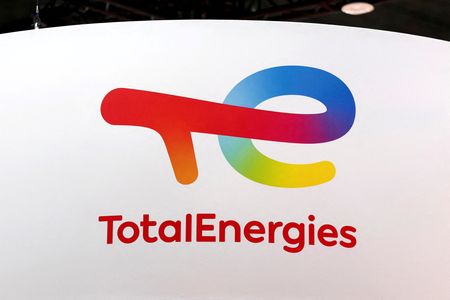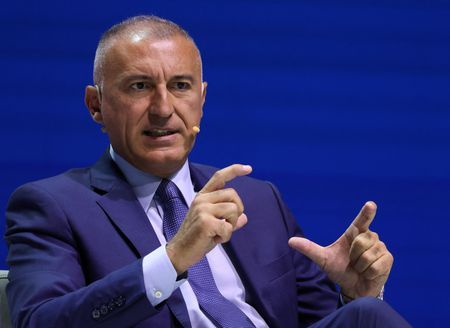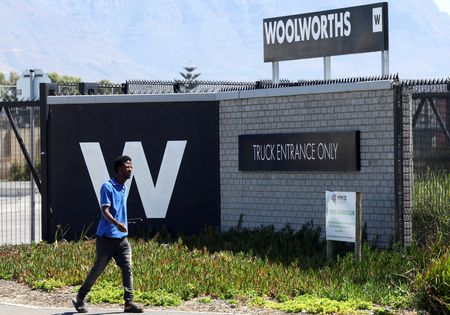By Isaac Anyaogu
LAGOS (Reuters) -Nigeria’s production-sharing contract with TotalEnergies, its first guided by a new law designed to boost the OPEC member’s gas production, will serve as a template for future deals, the oil regulator told Reuters on Wednesday.
The country’s Petroleum Industry Act adopted in 2021 recognised the distinct economics of oil and gas exploration and production and was followed by government incentives, such as tax credits and investment allowances for gas-only developments.
The deal agreed by the French energy major and its local partner on September 1, covers oil and gas prospecting licences awarded last year for about 2,000 square km (772 square miles) in the Niger Delta Basin.
“This new PSC (production-sharing contract) with TotalEnergies represents a policy shift, in line with the PIA, which aims to unlock Nigeria’s gas potential and support the transition to a gas-powered economy,” said Gbenga Komolafe, head of the Nigerian Upstream Petroleum Regulatory Commission.
Komolafe said all new deepwater and frontier acreage production sharing contracts will likely adopt similar gas terms and it sets a model for dedicated gas development contracts.
Africa’s largest oil producer is seeking to boost the share of gas in its energy mix both for economic reasons and as a transition fuel to cleaner energy.
Nigeria’s daily gas output was 1.31 million barrel equivalent (BOE) in July, compared with 1.86 million barrels of crude and condensates. Its estimated 210.5 trillion cubic feet of proven gas reserves are comparable to crude reserves, highlighting the gas sector’s potential.
However, infrastructure and regulatory gaps have hampered gas development in the past and the country continues to flare large volumes of gas. In July, the flaring rate, albeit at a three-year low, still exceeded 7% of total production.
While officials are optimistic that more deals and investment will follow under the new framework, some analysts remain cautious. “The real challenge lies in the detail of cost recovery, particularly the timing, scope, and administrative process,” said Ayodele Oni, a Lagos-based energy lawyer and partner at Bloomfield Law Firm.
Mikolaj Judson, analyst at Control Risk said that for the new incentives to be meaningful, wider reforms were needed in the sector where in the past infrastructure shortfalls and insufficient regulation have discouraged investment. Otherwise, “investors will continue to face various risks in developing gas projects,” he said in a note to Reuters.
(Reporting by Isaac AnyaoguEditing by Tomasz Janowski)











